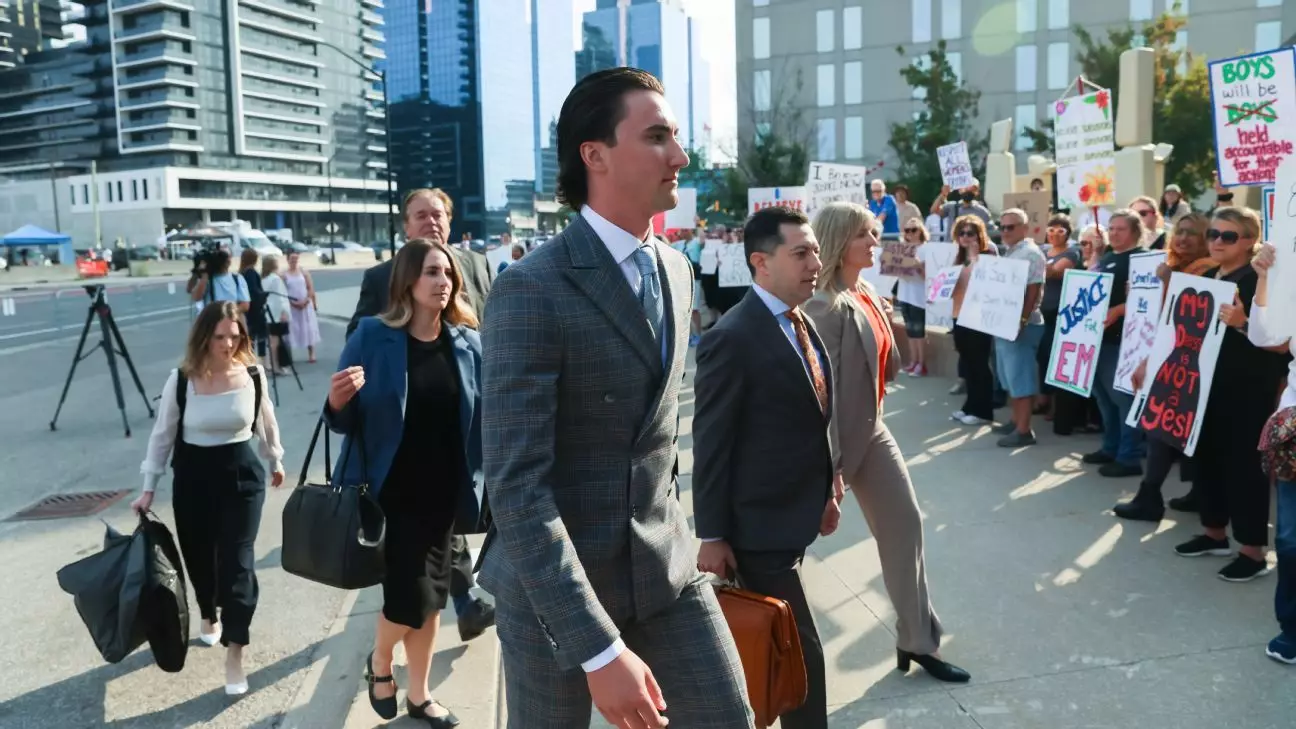The recent acquittal of five former junior hockey players on serious sexual assault charges underscores a crucial reality: justice, when rooted in thorough investigation and judicial scrutiny, often reveals uncomfortable truths about cases clouded by emotion and misinformation. While the allegations initially cast a shadow over the reputations of these athletes, the court’s verdict demonstrates the importance of respecting the legal process and ensuring that convictions are based on credible evidence. This case raises a fundamental question about how society should balance the intense desire for justice with the imperative of fairness and due process. It’s a stark reminder that accusations, no matter how distressing, must be substantiated with concrete proof before condemning individuals. The legal system’s role is to protect the innocent and ensure that justice is not swayed by sensationalism or biases, a principle that seems to have been upheld here.
The Pitfalls of Public Opinion and Media Influence
In high-profile cases like this, public opinion and media narratives can exert enormous pressure on all parties involved. The initial wave of accusations can tarnish reputations overnight, often before the legal process has had its say. The court’s determination that the complainant’s testimony lacked credibility highlights the danger of taking allegations at face value without meticulous scrutiny. It also illustrates the potential for sensationalized coverage to influence perceptions, sometimes harming innocent individuals who are presumed guilty by association. The natural inclination to seek swift justice can sometimes lead to premature judgments, which makes the court’s meticulous evaluation all the more vital. The justice system’s ability to separate fact from fiction is essential in safeguarding individual rights and maintaining societal trust.
The Implications for the Sports World
This case also ignites important discussions about accountability and fairness within professional sports. The NHL’s initial decision to keep the players ineligible reflects a cautious approach, rooted in protecting the league’s integrity. However, the league’s stance has come under scrutiny for its perceived inconsistency with established disciplinary procedures. While leagues must uphold standards and safeguard their image, they must also recognize the importance of due process for athletes facing serious allegations. Barring players from competition based on unproven claims risks undermining the fairness that should underpin all disciplinary actions. This incident could serve as a catalyst for sports entities to reevaluate their policies, striking a better balance between protecting reputation and respecting legal verdicts. Ultimately, true justice in sports requires not only swift action but also unwavering adherence to fairness, transparency, and the presumption of innocence until proven guilty.


Leave a Reply